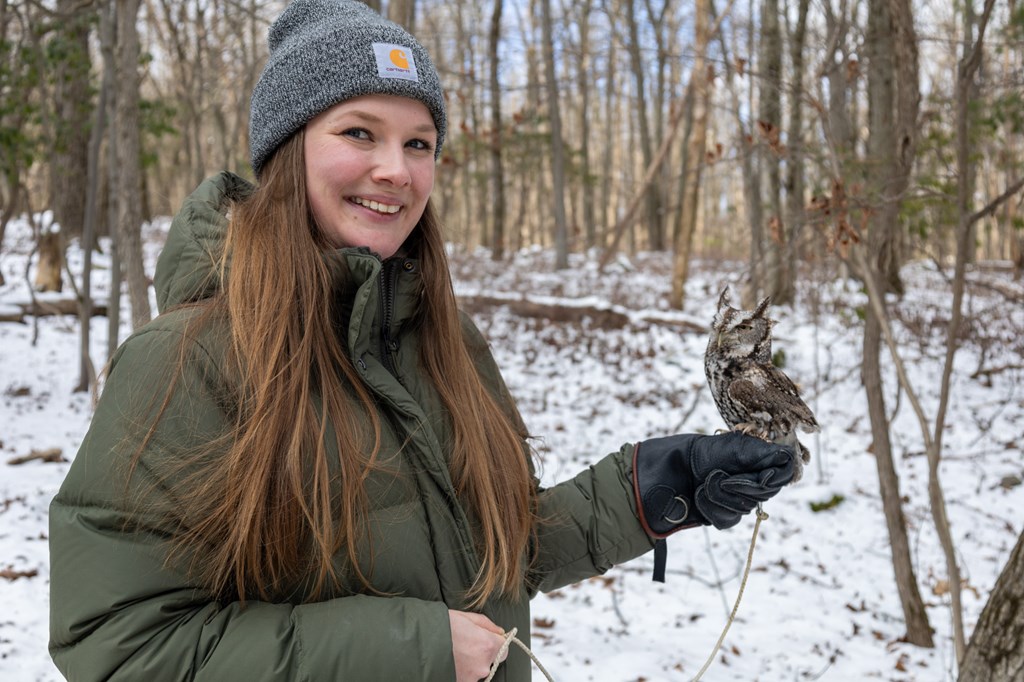Hawk Mountain hires Megan Roselli as Director of Education
Posted on January 09, 2025 in Education

Hawk Mountain Sanctuary recently hired Megan Roselli as its new Director of Education, replacing Jamie Dawson who departed in 2024. Megan previously managed STEAM education programs and a team of up to a dozen educators for the Da Vinci Science Center in Allentown and brings to the Sanctuary experience in both public education and field settings, in addition to having studied the natural history of local and migratory birds.
“Megan has a rare blend of hands-on science and research experience, coupled with a business acumen and planning skills to drive education at Hawk Mountain to its highest potential. We’re excited to have her join the team at the Sanctuary,” says President Sean Grace.
Megan earned her BS in Biology at Wilkes University and an MS in Natural Resource Ecology and Management at Oklahoma State University. She is a published scientist with six peer reviewed publications and a nationally recognized informal educator who has been invited to present her work for the Association of Science and Technology Centers (ASTC) and the National Informal STEM Education Network (NISE Net).
During her time at the Da Vinci Science Center, she rose quickly, holding several outreach and lead supervisor positions in short order. Her previous experience includes field work at Acadia National Park and serving as a research technician for Neighborhood NestWatch’s citizen science program. Combined, she brings experience in developing and implementing educational experiences in a variety of formats and settings, along with having developed and executed projects with academic, federal, state, and non-profit partners.
Most importantly, Megan believes in the Hawk Mountain mission and is excited to join the team.
“My dream is that everyone sees the interconnectedness of the world they live in. What happens in Kempton, Pennsylvania, can cascade through other states, countries, and ecosystems. Science, science education, and specifically migratory raptors are the perfect way to show that local, community-based changes can have a lasting, global impact,” she says.